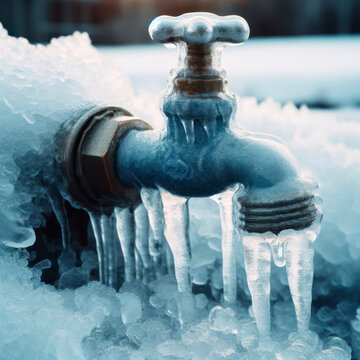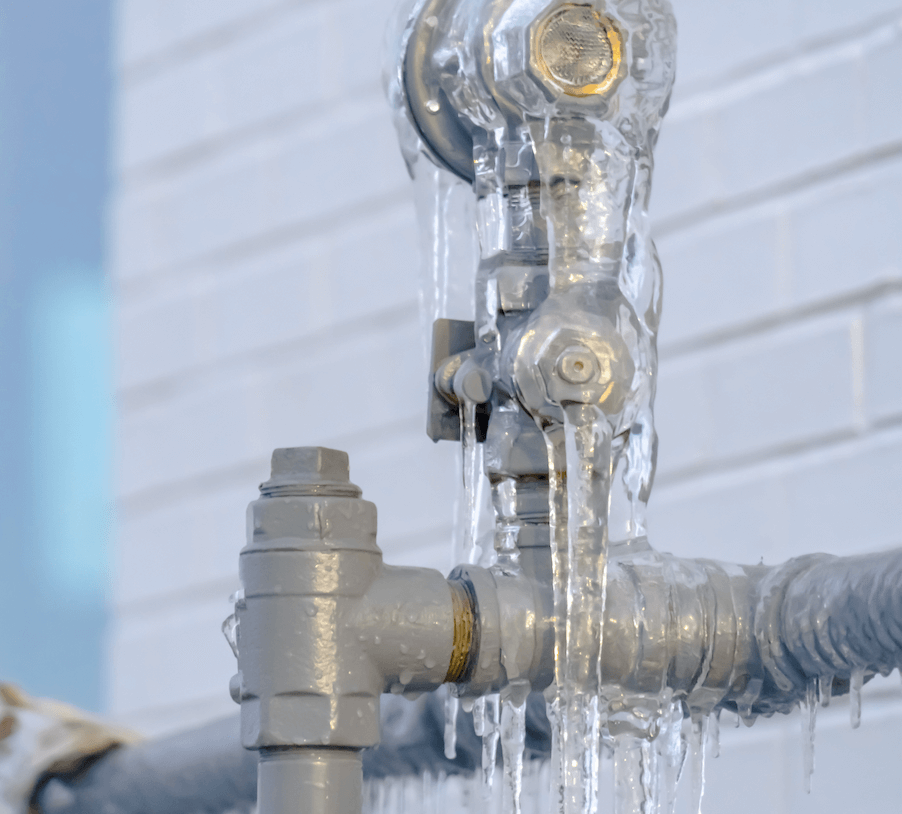Critical Methods for Avoiding Frozen Pipes in Winter
Critical Methods for Avoiding Frozen Pipes in Winter
Blog Article
How do you feel in regards to 6 Ways to Prevent Frozen Pipes?

Cold weather can damage your pipes, particularly by freezing pipelines. Below's just how to avoid it from happening and what to do if it does.
Intro
As temperature levels decrease, the risk of icy pipes increases, possibly causing costly fixings and water damages. Understanding exactly how to stop icy pipelines is critical for home owners in cool climates.
Prevention Tips
Insulating vulnerable pipelines
Cover pipes in insulation sleeves or use heat tape to secure them from freezing temperatures. Concentrate on pipes in unheated or exterior locations of the home.
Heating strategies
Keep interior areas sufficiently heated up, particularly areas with pipes. Open closet doors to permit warm air to flow around pipes under sinks.
How to determine icy pipelines
Try to find reduced water flow from taps, uncommon smells or sounds from pipelines, and visible frost on subjected pipes.
Long-Term Solutions
Architectural modifications
Take into consideration rerouting pipelines far from outside wall surfaces or unheated areas. Add additional insulation to attics, basements, and crawl spaces.
Updating insulation
Invest in premium insulation for pipelines, attic rooms, and walls. Appropriate insulation helps maintain consistent temperatures and lowers the risk of icy pipes.
Securing Exterior Pipes
Garden hose pipes and outdoor taps
Detach and drain pipes garden pipes prior to wintertime. Mount frost-proof spigots or cover outside taps with insulated caps.
Understanding Frozen Pipes
What creates pipelines to ice up?
Pipelines ice up when exposed to temperatures listed below 32 ° F (0 ° C) for expanded durations. As water inside the pipelines freezes, it increases, taxing the pipe walls and potentially triggering them to rupture.
Risks and damages
Frozen pipes can cause supply of water interruptions, residential or commercial property damage, and costly repair services. Ruptured pipes can flood homes and create extensive structural damages.
Indicators of Frozen Pipes
Identifying frozen pipes early can avoid them from rupturing.
What to Do If Your Pipelines Freeze
Immediate activities to take
If you presume icy pipelines, maintain taps available to soothe stress as the ice thaws. Make use of a hairdryer or towels taken in warm water to thaw pipelines slowly.
Conclusion
Preventing icy pipes requires aggressive actions and fast feedbacks. By understanding the reasons, indicators, and preventive measures, homeowners can secure their plumbing throughout winter.
Helpful Tips to Prevent Frozen Pipes this Winter
UNDERSTANDING THE BASICS: WHY PIPES FREEZE AND WHY IT’S A PROBLEM
Water freezing inside pipes is common during the winter months, but understanding why pipes freeze, and the potential problems it can cause is crucial in preventing such incidents. This section will delve into the basics of why pipes freeze and the associated problems that may arise.
THE SCIENCE BEHIND FROZEN PIPES
When water reaches freezing temperatures, it undergoes a physical transformation and solidifies into ice. This expansion of water as it freezes is the primary reason pipes can burst. As the water inside the pipe freezes, it expands, creating immense pressure on the walls. If the pressure becomes too great, the pipe can crack or rupture, leading to leaks and water damage.
FACTORS THAT CONTRIBUTE TO PIPE FREEZING
Low Temperatures: Extremely cold weather, especially below freezing, increases the risk of pipes freezing. Uninsulated or Poorly Insulated Pipes: Pipes located in unheated areas, such as basements, crawl spaces, or attics, are more prone to freezing. Insufficient insulation or lack of insulation altogether exacerbates the problem. Exterior Wall Exposure: Pipes running along exterior walls are susceptible to freezing as they encounter colder temperatures outside. Lack of Heating or Temperature Regulation: Inadequate heating or inconsistent temperature control in your home can contribute to frozen pipes. PROBLEMS CAUSED BY FROZEN PIPES
- Pipe Bursting: As mentioned earlier, the expansion of water as it freezes can cause pipes to burst, resulting in significant water damage.
- Water Damage: When pipes burst, it can lead to flooding and water damage to your property, including walls, ceilings, flooring, and personal belongings.
- Structural Damage: Prolonged exposure to water from burst pipes can compromise the structural integrity of your home, leading to costly repairs.
- Mold and Mildew Growth: Excess moisture from water damage can create a favorable environment for mold and mildew growth, posing health risks to occupants.
- Disrupted Water Supply: Frozen pipes can also result in a complete or partial loss of water supply until the issue is resolved.
WHY CERTAIN PIPES ARE MORE PRONE TO FREEZING
- Location: Pipes located in unheated or poorly insulated areas, such as basements, crawl spaces, attics, or exterior walls, are at higher risk of freezing.
- Exterior Pipes: Outdoor pipes, such as those used for irrigation or exposed plumbing, are particularly vulnerable to freezing as they are directly exposed to the elements.
- Supply Lines: Pipes that carry water from the main water supply into your home, including the main water line, are critical to protect as freezing in these lines can affect your entire plumbing system.
- Underground Pipes: Pipes buried underground, such as those connected to sprinkler systems or outdoor faucets, can be susceptible to freezing if not properly insulated.
https://busybusy.com/blog/helpful-tips-to-prevent-frozen-pipes-this-winter/

I am very interested by Winter Plumbing Precautions: Preventing Frozen Pipes and I am assuming you appreciated my entry. Loved our posting? Please share it. Let someone else discover it. Bless you for being here. Come back soon.
Get Started Report this page